|
After the class room sessions, the participants were divided in three groups and sent to different field exposures. The participants visited villagers, schools, street children, met young people for two days and they became a part of the lives of the people. They came back and shared their experiences.
Alternative response session conducted by Fr.Stephen. He brings the participant to think something especial to do their own society. YMCA is best place for community development. Youth are the tools bring response own place. All the participants make own action plan which they intend to implement upon return to their respective YMCAs.
The training concluded with high expectations that the participants shall hold follow up programs in their own YMCAs after this training. We thank the Indian Social Institute, Bangalore and the National Council of YMCAs of India for their relentless support, which made this GCI a grand success.
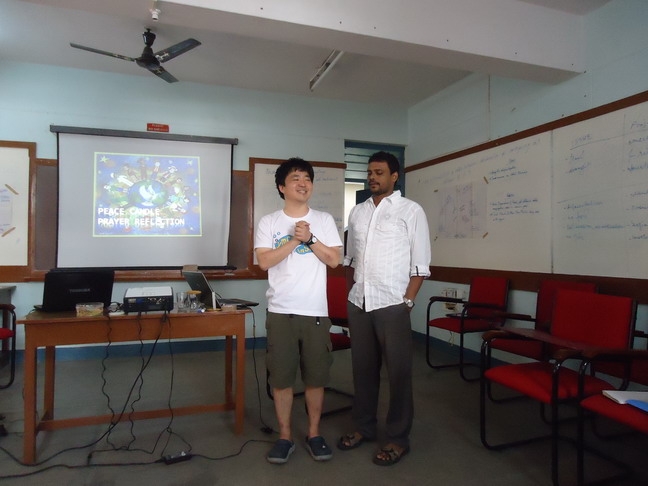
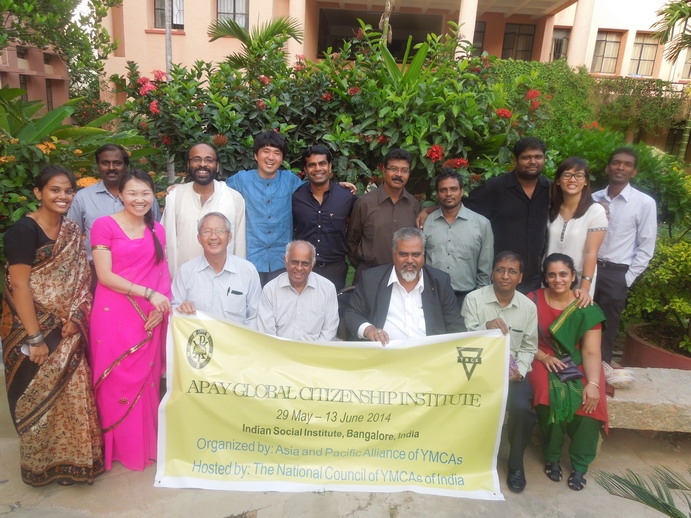
~ Roger Peiris, Youth Program Officer
The Global Citizenship Institute is an initiative of the APAY, launched with a view to impart the knowledge and ingrain the sense of Global Citizenship amongst our youth. The youths of the YMCAs today shall be the future leaders of the YMCA. The understanding of Global Citizenship shall help them to be sensitive towards the issues we are facing globally today and to be aware of needs of our communities and eventually lead to local action programs based on Global Citizenship, which will pave the way towards our YMCA mission of having a society based on justpeace and sustainable development.
The Global Citizenship Institute is a two week long intensive course, where the participants are initially imparted the basics of Global Citizenship, then they are sent for community emersion, where they gain emphatic understanding of the realities of the community. They experience the pangs of poverty and the result of deprivation. Upon returning to the class room, their dwell upon analyzing the root causes of the issues and also examine the alternative responses which could reverse the demerits of the globalization. The participants do also have the opportunity to examine similar situation in their own locality, from where they come from.
Competent resource persons help them to understand the root causes and show them the possible ways of alternative responses. The participants of the GCI draw up their action plan which they will implement upon their return to their home countries.
The Global Citizenship Institute was a great success this year, held in Bangalore, India from 29th May to 13th June. It could carry out all the elements of the curriculum in an orderly manner and have succeeded to bring about positive changes in the mindset of the participants. This shall inspire them to be sensitive towards the issues they face in their own communities. The community emersion was for three days where the participants had the opportunity to reside in the slums, understand the lives of the people there and had been able to build up good rapport with their host families. This was an incredible experience for the participants especially who came from the developed countries. They also the realized the love and care of these downtrodden people, who are the most neglected in the society. Surely, this had grown a sense of responsibility for the participants to take practical initiatives for the people of the lesser God, to bring positive changes in their lives.
We are quite optimistic that the GCI has encouraged our participants to be more involved in the community with the sense of Global Citizenship and work towards betterment of the society. Our heartfelt gratitude to the Indian Social Institute, Bangalore, and the National Council of YMCAs of India for their unconditional support in rendering this program. We wish to continue this program for the following years.
~ Duncan Chowdhury , Executive Secretary
Disaster Risk Reduction Management Training
In 2012 and 2013, the Asia and Pacific Alliance of YMCAs conducted a series of disaster Preparedness and Management workshops in Yangon, Myanmar and Kallar, Sri Lanka. Participated in by YMCAs from disaster prone countries, the workshops were intended to help develop their capacities in responding to emergencies, better understand the International Humanitarian Standards and learn how to avail support by completing the Emergency Appeal Templates. This time, this national initiative of the YMCA of the Philippines was on preparedness to reduce the risk of disasters involving the local YMCAs and increasing the youths’ participation. It was aimed at building capacities and competencies of local YMCAs in managing emergency response and reducing the risk of disasters in their own local context. In addition, it also aimed at forming a National Disaster Risk Reduction Committee to coordinate and manage local Disaster Management activities of the YMCA.
Held on May 27-30, 2014 at Carlos Hometel, Rawis, Legazpi City, this workshop was participated in by 25 local representatives from nine (9) local YMCAs including the National General Secretary, eight (8) local General Secretaries, senior staffs and Board members of the local YMCAs.
After the theoretical discussion on related topics as Introduction to Disaster Risk Reduction and Climate Change, Participatory Capacity Vulnerability Assessment Tools, WAY International Coordination Protocol and Emergency Appeal, Sharing of Experiences and Lessons Learned, a simulation activity on Evacuation and Contingency Planning was organized. Participants were divided into four (4) groups which were then trained through actual evacuation and organizing exercises and by living in tents as temporary shelter and cooking their food from relief rations. This was a good learning experience as gathered from feedbacks and observations by both adult and young leaders. This was followed by a briefing on and actual Water Survival Exercises. A National YMCA Disaster Risk Reduction Committee Framework was organized and later presented and approved in principle by the National Board during its meeting on May 31.
This initiative was organized and co-hosted by the YMCA of Albay and the YMCA of the Philippines with support from Y Care International and Asia and Pacific Alliance of YMCAs. The latter two international organizations were represented during the workshop.
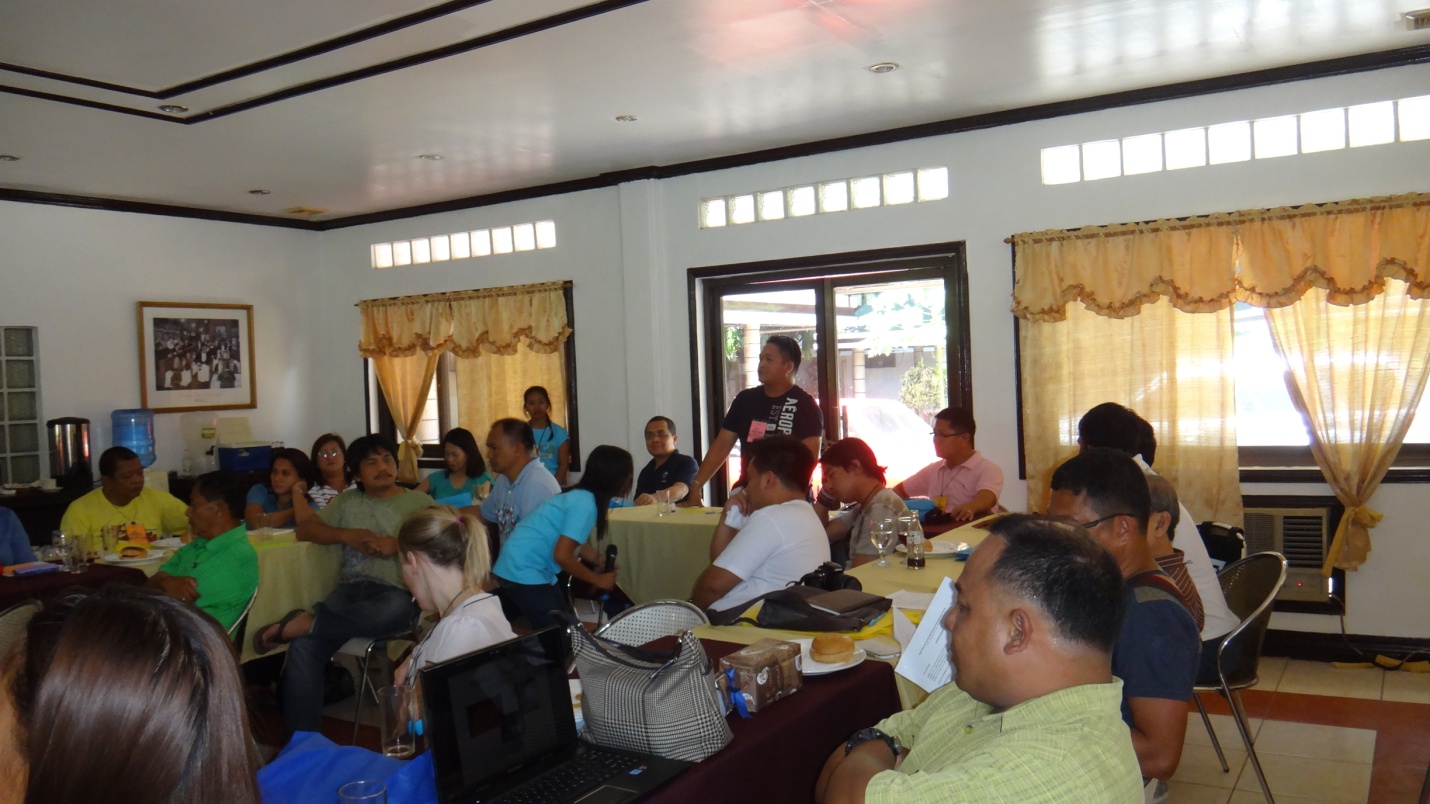 |
|
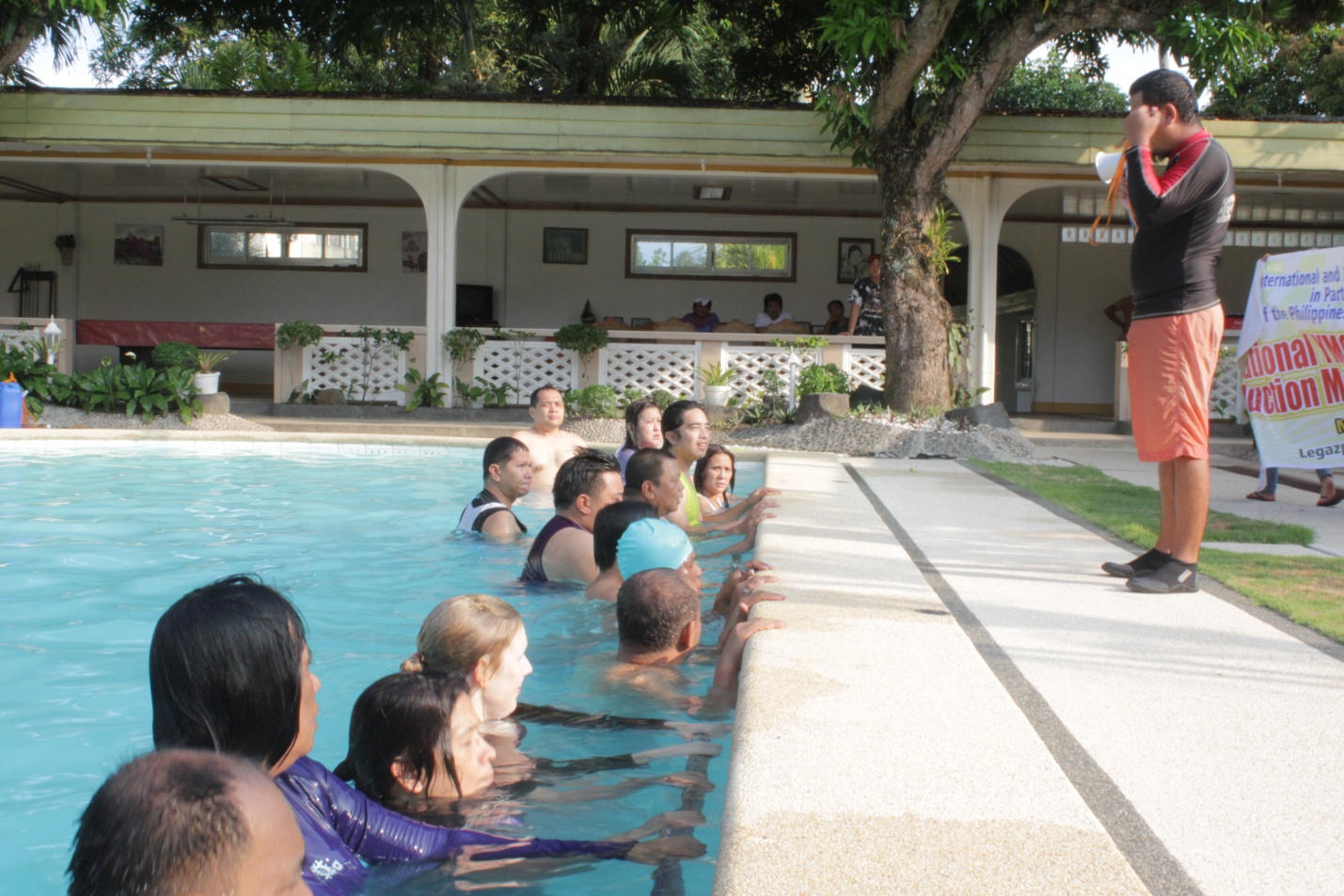 |
|
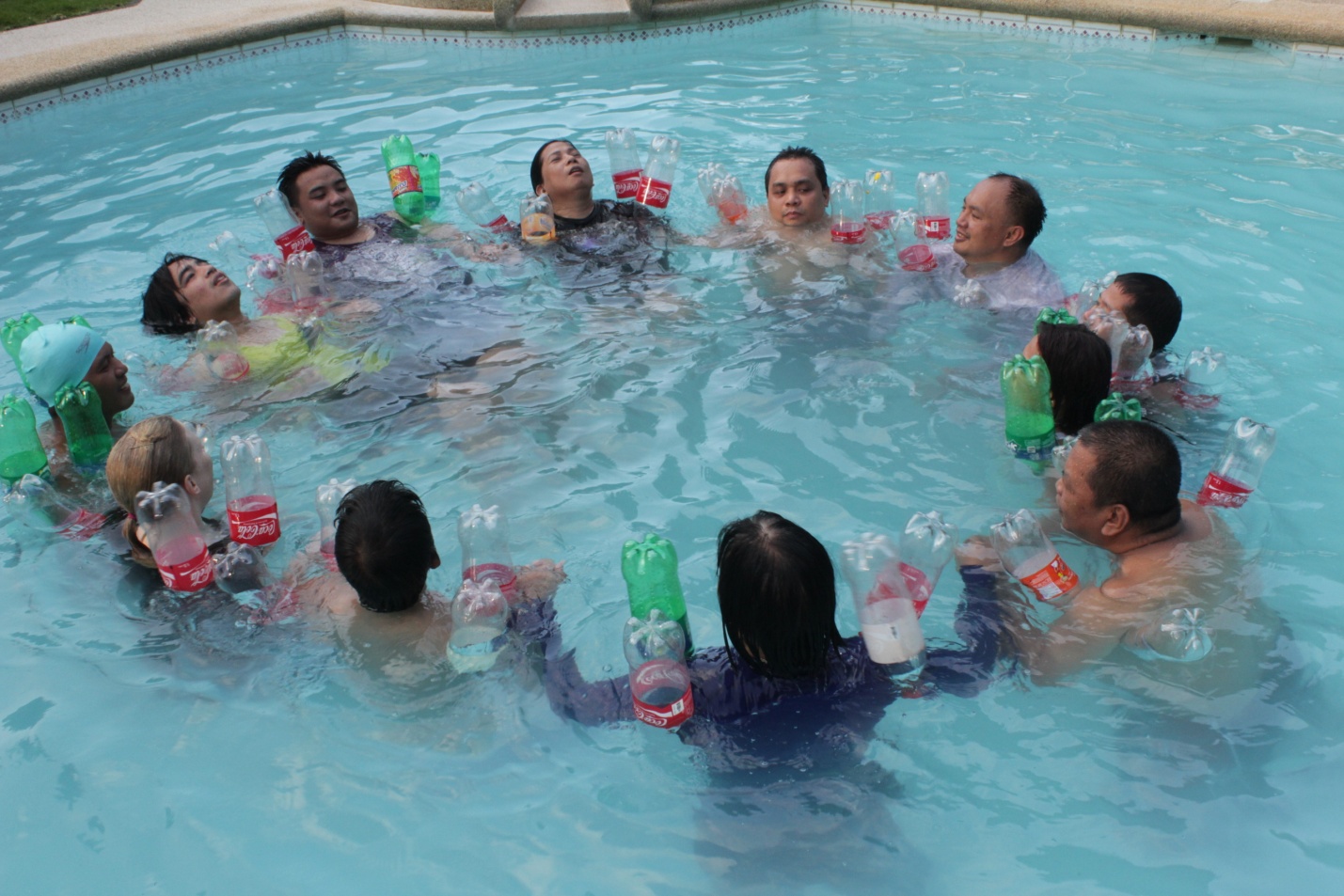 |
| Participants during session on National DRR and Management Workshop held on May 27-30, 2014, Legazpi, Albay, Philippines |
|
Participants to DRR Management Workshop during a Water Survival Exercises, Philippines |
|
Water Survival exercises during DRR Management Workshop, Philippines |
~ Eloisa Borreo, Executive Secretary
APAY concern for Climate Change
During the Consultation Meeting of APAY Global Alternative Tourism Network held in September 2013 in Phnom Penh, Cambodia, the need was felt to form a Resource Group on Climate Change in APAY. The main objective of this group will be to provide information and support for the advocacy and lobby work of the YMCAs and APAY in combating climate change. They will be made up of members from our national movements who are informative and knowledgeable in this field. They will be facilitated by the staff of the APAY.
The members of the resource group are expected to actively involve themselves in studying the recent trends of Climate Change, Climate Justice and Responsible Tourism in order to provide information and support for the advocacy and lobby work of the YMCAs and APAY in combating climate change. They will also support the APAY to organize workshops, seminars with a view to conscientize the YMCA members especially the youth in issues related to Climate Change, Climate Justice and Responsible Tourism.
Working in collaboration with Bread for the World, the resource group will assist the APAY to monitor the developments in Climate Change Negotiation process (United Nation Framework Convention on Climate Change - UNFCCC), follow the activities of the various UN and other international organizations working in this field (e.g. International Civil Aviation Organization - ICAO, International Maritime Organization - IMO, United Nation World Tourism Organization - UNWTO).
~ Chan Beng Seng, GATN Program Coordinator
ICF Workshop in India focuses on Justpeace Education for Children
Interfaith Cooperation Forum (ICF) held a workshop from June 11 to 14, 2014, at the Henry Martyn Institute (HMI) in Hyderabad, India, to discuss ways to educate children about justpeace. The participants included four School of Peace (SOP) alumni from Indonesia and Sri Lanka who work with children and nine HMI staff members as well as two staff members of ICF. This workshop is a follow-up activity to the program held in June 2013 in Phnom Penh, Cambodia, and is part of ICF’s efforts to create materials for children about justpeace.
Consequently, at this workshop in India, the participants shared their thoughts about the content of resource kits that ICF will produce for children about justpeace. They also spent a good deal of time to consider an appropriate and holistic curriculum based on a variety of factors—interfaith spirituality, the culture and history of the children and their community and the physical and psychological needs of the children—as well as a number of different educational environments, such as formal and alternative forms of education.
In addition, the participants visited the school at HMI’s Aman-Shanti Center that is located between predominantly Hindu and Muslim neighborhoods in Hyderabad that caters to children from both communities. As tensions and violence periodically arise between Hindus and Muslims in the city, the school is a place where children and their parents can regularly interact with each other and thus build relationships with each other that can hopefully mitigate the conflicts between them.
 |
|
 |
| Participants of ICF’s workshop for justpeace education for children play a game to introduce themselves to each other during the program in India. |
~Bruce van Voorhis, Interfaith Cooperation Forum (ICF)
APAY Regional Youth Conference 2014
We are glad to inform that the APAY Regional Youth Conference 2014 will be held in Cambodia during 25-30 August 2014. The theme of the conference is “Youth Empowerment for Sustainable Development”.
The APAY Youth Conference is an annual program of the Youth Participation and Leadership Development Committee. This is a platform to help promote Global Citizenship Education for young people from Asia and Pacific countries to join hand in hand in citizenship involvement and to be effective participants in global society, to redefine the new perspective of friendship, cultural pursuit and social action in the context of emerging socio- cultural – technological – economic realities in the Asia and Pacific Region.
The participants at the Youth Conference will also have a unique opportunity to experience Cambodian Socio – Economic – Cultural trends in young Cambodian lives.
Detailed information about the Youth Conference has been sent to the National Movements. For further details please write to Roger Peiris, Youth Officer, APAY, email : roger@asiapacificymca.org or visit our website www.asiapacificymca.org or the following link: http://www.asiapacificymca.org/joomla/index.php?option=com_content&view=article&id=390:apay-regional-youth-conference-2014-august-25-30-2014&catid=97:youth-issues-and-concerns&Itemid=436
~ Roger Peiris, Youth Program Officer
32nd Advanced Studies Program 2014
The APAY is now inviting applications from qualified professional secretaries for the selection process to participate at the 32nd Advanced Studies Program (ASP). It will be held from 2 to 29 November 2014 at the Chinese YMCA Wu Kwai Sha Youth Village, Shatin, Hong Kong. All selected participants are required to pay the mandatory Registration Fee US$350, Green Fund of US$15 and Participation Fee US$1,700 for covering board and lodging & programme costs in Hong Kong.
Closing date for receiving applications is on 31 July 2014. Details of the programme have been circulated to National Movements and posted on the APAY website.
New National General Secretary of National Council of YMCAs of India
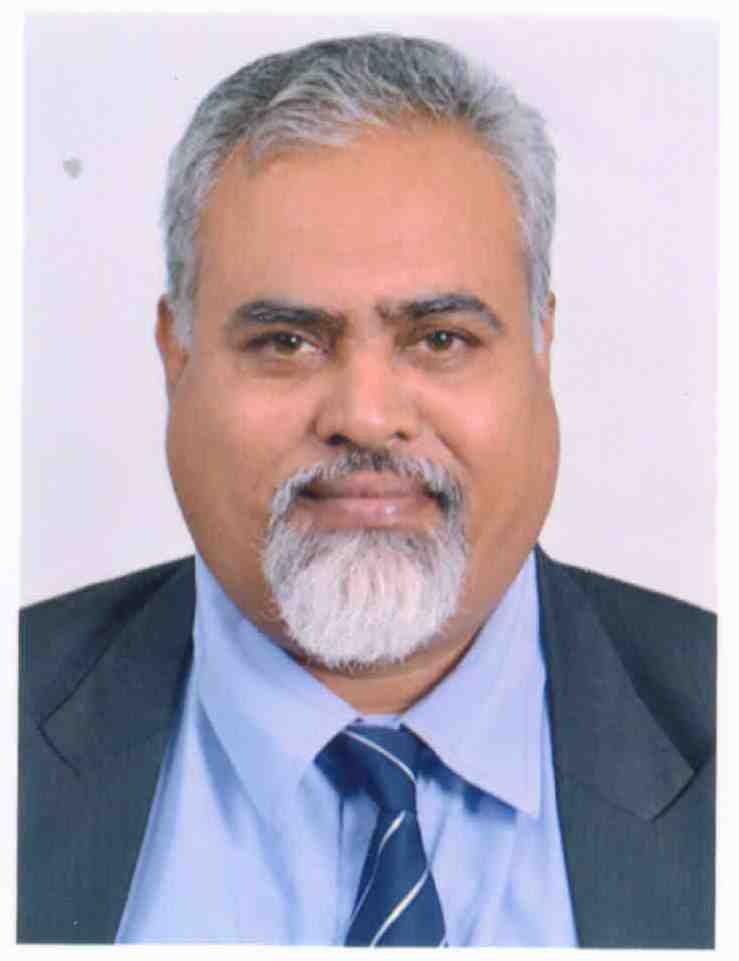 At the special meeting of the National Board of the National Council of YMCAs of India held on May 31, 2014 in Hyderabad, Mr. Ch. R.P. Manikumar was appointed as the new National General Secretary of the National Council of YMCAs of India and has taken over the charges for the term 2014-2019 with effective from June 2, 2014. At the special meeting of the National Board of the National Council of YMCAs of India held on May 31, 2014 in Hyderabad, Mr. Ch. R.P. Manikumar was appointed as the new National General Secretary of the National Council of YMCAs of India and has taken over the charges for the term 2014-2019 with effective from June 2, 2014.
Mr. Manikumar has 31 years of service with Local, Sub-Regional, Regional, National and International YMCAs. He is married and has 2 sons. We congratulate him and wish him all the success in his new role.
We also remember Mr. John Varughese, the former National General Secretary for his dynamic leadership and relentless service to the National Council of YMCAs of India.
|
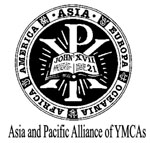












 At the special meeting of the National Board of the National Council of YMCAs of India held on May 31, 2014 in Hyderabad, Mr. Ch. R.P. Manikumar was appointed as the new National General Secretary of the National Council of YMCAs of India and has taken over the charges for the term 2014-2019 with effective from June 2, 2014.
At the special meeting of the National Board of the National Council of YMCAs of India held on May 31, 2014 in Hyderabad, Mr. Ch. R.P. Manikumar was appointed as the new National General Secretary of the National Council of YMCAs of India and has taken over the charges for the term 2014-2019 with effective from June 2, 2014.